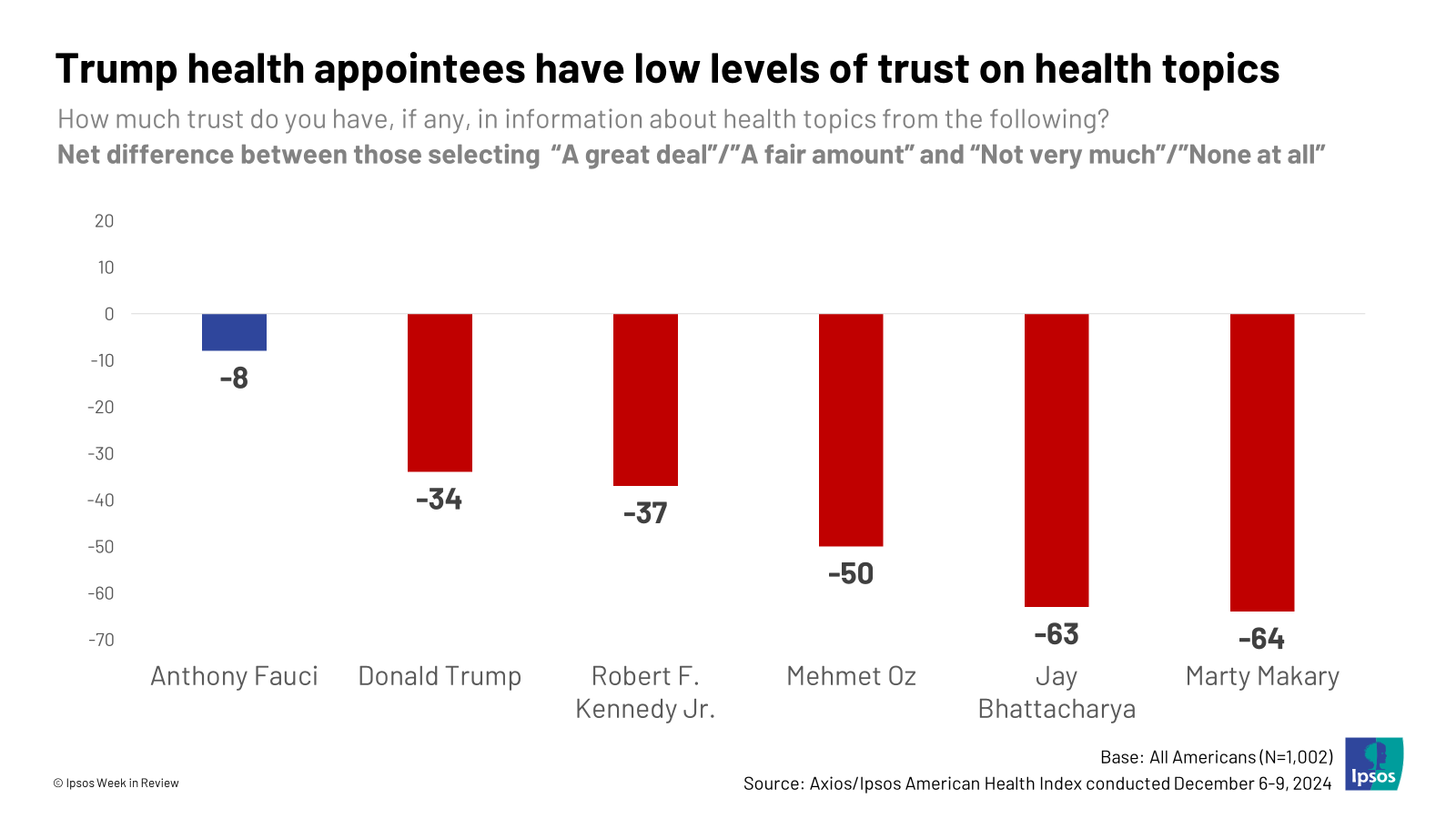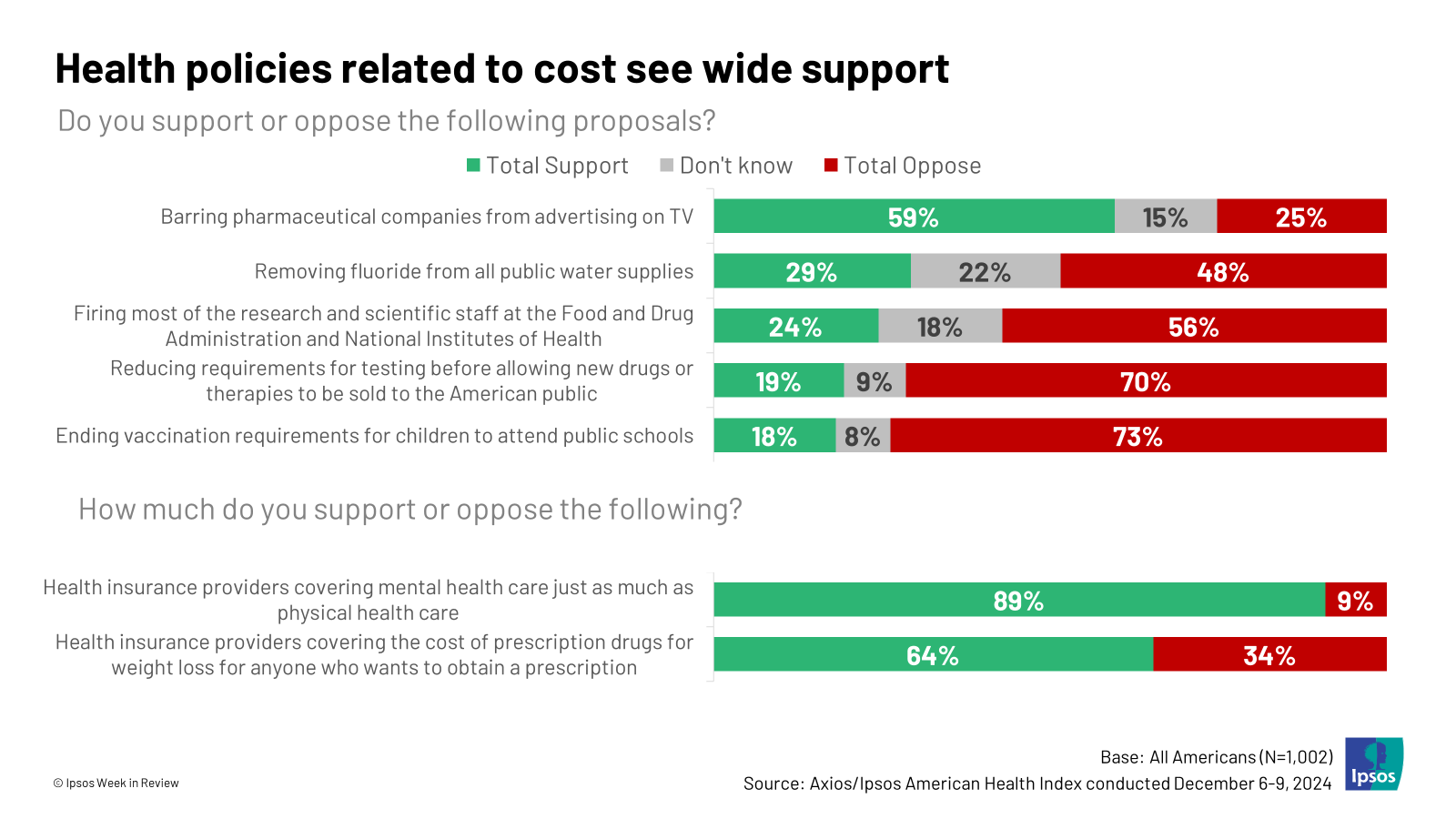Where Americans stand on healthcare heading into Trump’s second term
Over the past week, the fatal shooting of UnitedHealthcare CEO Brian Thompson has been a fixation in the media and the source of a wide range of reactions on social media.
This focus on healthcare comes just as President-elect Donald Trump is set to take office in about a month, with plans to potentially reshape healthcare. Given all the news about healthcare, where do Americans stand when it comes to healthcare?
Below are five charts on how Americans feel about the state of U.S. healthcare, Trump’s health-related cabinet picks, and some of the key policies his nominees want to implement.
- Not top of mind. Healthcare doesn’t tend to register as a major issue when asking Americans what they feel most concerned about. Though healthcare is seen as an important issue to many Americans, it’s not the priority.

- Dissatisfied with both the government, businesses. Across most demographics, even partisanship, Americans feel that businesses and the government don’t prioritize consumers’ health and well-being.

- Costs are key. It’s not necessarily quality – costs play a key role in Americans’ dissatisfaction with their healthcare. Americans are mostly satisfied with the quality of healthcare they receive but feel slightly less satisfied when it comes to costs. Lowering costs and inflation for everyday goods was one of Trump’s key campaign promises. Can he do the same for the healthcare industry? We will see.

- Trump’s health nominees have low trust – for now. Of course, many Americans may also not be fully familiar with some of the figures Trump has nominated to health-related cabinet positions. This is also highly partisan – on average, Democrats have far lower levels of trust in these figures compared to Republicans. Can the Trump administration win over trust with the American public? We will see.

- Cost initiatives are widely supported. Out of those polled, some of the of the health-related initiatives that figures like Robert F. Kennedy Jr. have voiced support for do not have widespread support. However, policies that address healthcare costs for things like mental health and weight loss drugs see much wider support.

Right now, Americans are mostly satisfied with the quality of healthcare they receive but are a little more sensitive to the costs. How might healthcare continue to fare under Trump? It may be a mixed bag given a lack of trust in Trump’s health-related cabinet picks when it comes to healthcare information. But if Trump’s plans to improve healthcare costs pan out, Trump may improve his standing on healthcare.
That said, by and large, Americans’ vote for Trump was a vote for the economy, not healthcare. It’s not top of mind for most Americans and relatively few want Trump to prioritize healthcare in his first 100 days in office. Of course, in under 50 days, Trump and his cabinet can begin to start working on improving Americans’ long-standing dissatisfaction with the healthcare system. Watch this space.


